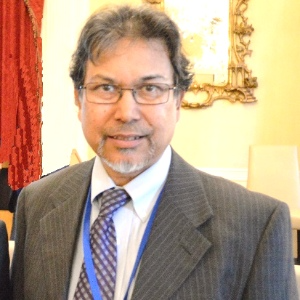The act of reducing something or someone to a less regarded state is known as degradation. Degradation is a complex process in polymer science that occurs when a polymeric material is exposed to the environment and stress and loses its initial qualities. Degradation is almost always a negative experience. Polymer degradation is a change in a polymers or a polymer-based product's qualities, such as tensile strength, colour, form, and molecular weight, caused by one or more external elements, such as heat, light, chemicals, or any other applied force. Degradation is frequently caused by a change in the chemical and/or physical structure of the polymer chain, which results in a reduction in the polymer's molecular weight. These changes can be undesirable, such as during use, or beneficial, such as biodegradation or intentionally lowering a polymer's molecular weight. Controlled polymer degradation, on the other hand, is advantageous in some situations.
Polymer stabilisers are chemical additives that can be added to polymeric materials like plastics and rubbers to prevent or delay breakdown. Oxidation, UV-damage, thermal degradation, ozonolysis, and mixtures of these processes such as photo-oxidation, as well as interactions with catalyst residues, dyes, or contaminants, are all common polymer degradation processes. All of these damages the polymer chemically, through chain scission, uncontrolled recombination, and cross-linking, affecting many important qualities like strength, malleability, appearance, and colour.
- Stabilizers used in polymer industries
- Methods adopted to prevent polymer degradation

Ephraim Suhir
Portland State University, United States
Thomas J Webster
Interstellar Therapeutics, United States
Robert Buenker
University of Wuppertal, Germany
Will Skene
Montreal University, Canada
Valeriy A Buryachenko
Micromechanics & Composites LLC, United States
Anis Rahman
Applied Research & Photonics, Inc, United States
Will Skene
Montreal University, Canada
Robert Guidoin
Laval University, Canada
Robert Buenker
University of Wuppertal, Germany


Title : Introducing picotechnology: An exciting extension of nanotechnology
Thomas J Webster, Interstellar Therapeutics, United States
Title : The failure of both einsteins space-time theory and his equivalence principle and their resolution by the uniform scaling method
Robert Buenker, University of Wuppertal, Germany
Title : Material challenges with proton conducting ceramics for intermediate temperature hydrogenation/dehydrogenation applications
Saheli Biswas, Commonwealth Scientific and Industrial Research Organisation, Australia
Title : Porphyrin layers at metal-electrolyte interfaces monitored by EC-STM and CV
Marek Nowicki, University of Wroclaw, Poland
Title : Color control of electrochromes by structural modification
Will Skene, Montreal University, Canada
Title : Make experiments more efficient: Two simple and powerful approaches. Mg2Si growth for photovoltaic and thermoelectric applications
Alexander S Gouralnik , Institute of Automation and Control Processes, Russian Federation
Title : Reconfigurable antenna structures using tunable materials
Nasimuddin, Institute for Infocomm Research, Singapore
Title : (0, 1 and 2) Dimensional hybrid architecture of the synthesized materials leads the smart sensing of the gaseous species at low/room temperature
D R Patil, North Maharashtra University, India
Title : Enhanced grain refinement, precipitates regulation, and improved mechanical properties of cast Al-Li alloy by Ti addition and heat treatment
Lixiong Shao, Shanghai Jiao Tong University, China
Title : Broadband sound attenuation of shape memory polymer with triangular-honeycomb unit cell metamaterial structural design
Musaab Ejaz, Universiti Teknologi PETRONAS (UTP), Malaysia